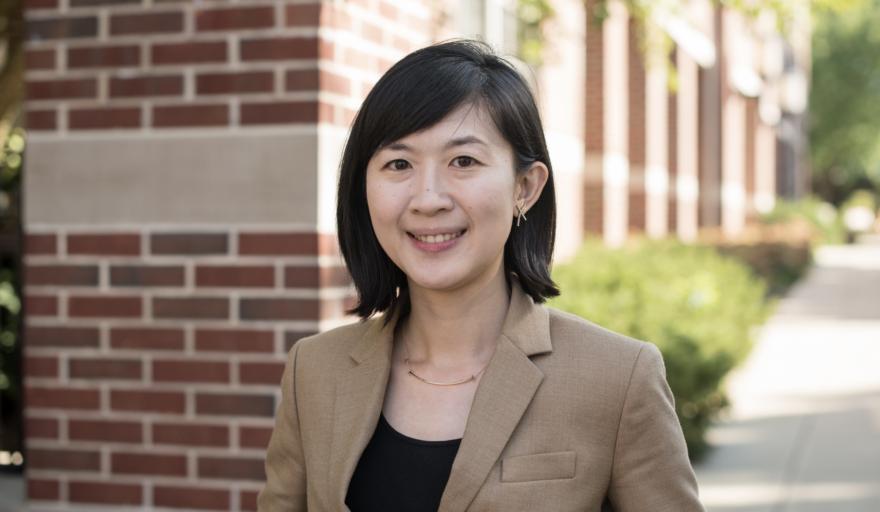Moving From Trauma to Growth
Wan-Jung (Wendy) Hsieh
PhD Student

Doctoral student Wan-Jung (Wendy) Hsieh is focusing her research on post-traumatic growth, with an eye to helping sexual abuse survivors not just rebound from their trauma, but to learn to thrive.
Wan-Jung (Wendy) Hsieh had long known her chosen career was in social work. She received her BSW from National Taiwan University in 2007 and her MSW from Washington University in 2011. But it wasn’t until 2013 that she knew her precise calling in the field.
That year, her very first client she had as a mental health counselor in a community agency in Seattle changed the trajectory of Hsieh’s career. The 12-year-old client, a refugee from Vietnam, had witnessed her brother being shot and killed. The girl, whom Hsieh refers to as “M,” had an absent father, an alcoholic mother who physically beat and emotionally abused her, and an inability to express her feelings and emotions.
“I tried to help her verbalize her feelings,” says Hsieh, a doctoral student in the School of Social Work. “In her culture, they don’t have the language for their emotions. There is no language for being overwhelmed.”
Hsieh worked for seven years with M, who was raised mainly by her grandmother, and witnessed many ups and downs in the girl’s life: cutting. Suicide attempts. (“I got so many calls at 2 or 3 a.m. to come to the ER to do a psychiatric evaluation, because she was suicidal,” Hsieh recalls.) Even when things were going in a good direction, roadblocks came up. When M applied herself at school, she got bullied. When counseling was going well, her mom would beat her up again.
Now, however, M is a first-generation college student at Washington State University. “I’m so proud of her!” Hsieh says. She is studying business, Hsieh adds, so she can better support her family. M still has a 10-year-old sister at home.
“I just got an email from her yesterday,” Hsieh says. “She told me her grandmother passed away, but she wanted M to tell me how much she appreciated me working with M and supporting her all these years.”
In working with M, Hsieh decided two things: first, to pursue a doctorate, so her influence could spread wider than just to individual clients, and second, to research, and eventually teach on, post-traumatic growth.
“Post-traumatic growth is not only about resilience,” Hsieh explains. “Resilience means you bounce back to your baseline after you experience hardship. But post-traumatic growth means you go way beyond your baseline. You become a better person, you learn how to thrive.”
Hsieh witnessed this thriving in M and in other clients, and she wants to learn about the factors that promote this thriving, and pass this knowledge on to community providers, particularly those who work among vulnerable populations.
“I think post-traumatic growth might be a key to encourage and empower people to believe there are positive things waiting for them on their trauma journey,” she says.
Hsieh’s research is delving specifically into post-traumatic growth among women who are survivors of sexual abuse. Related to that, she is researching the systematic betrayal that many female sexual abuse survivors face when they rely on the justice system—the police and the courts—to render justice.
“Sexual abuse is a very sensitive topic to talk about,” Hsieh says. “But after 2018, with the Me Too movement, a lot of issues around sexual assault began to emerge.”
Hsieh has no relatives living in the US, but the School creates a very nurturing environment, she says. “It’s important for me to feel supported in the program without having physical family by my side. That’s one thing I feel very grateful about,” she says.
Hsieh says she is also grateful for her experience with M. No doubt M, the beneficiary of post-traumatic growth through Hsieh’s counseling, returns that gratitude.